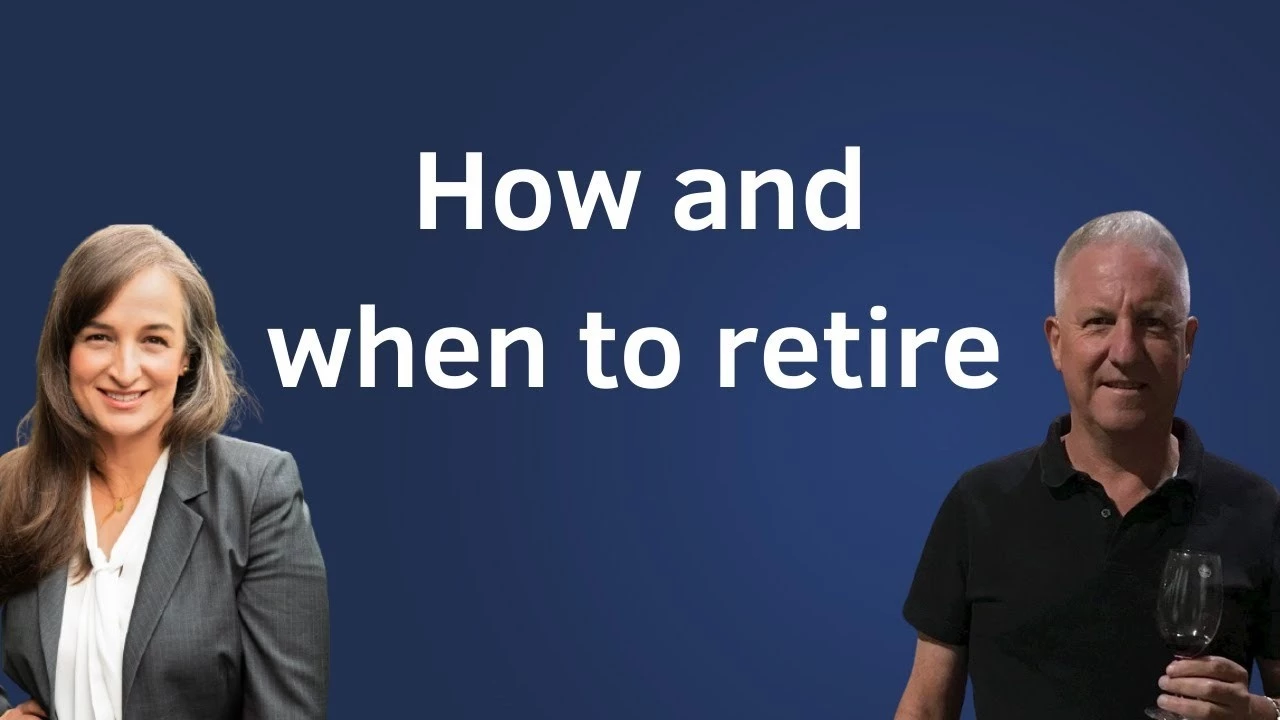Episode 63 - Financial Independence as a Key Goal of Successful Career Planning - with Paul Burrows

Introduction
Here we are, at the end of 2020, a year that turned our worlds upside down and inside out, and starting 2021 with a new sense of hope that our lives and careers will get back on track.
As my team and I take a break from working non-stop since the launch of this podcast back in October 2019, I have selected for you a very special episode from our catalog, which I feel is a perfect listen for this time of the year. You may not have heard this episode yet, or it may be worth re-listening if you have. I have picked it to match the times we live right now, and I feel it will be a great companion as you walk your dog, prepare a meal, or get ready to take action on your New Year's resolution.
About this episode
I want this podcast to be a one-stop-shop for you: career enthusiasts, job hunters, veteran professionals facing career disruption and transition, rising stars who want to learn as much as possible to enable their career progression and goals. Here you will hear from experts and professionals that came before you, are a few years or decades ahead, and have great stories and examples to share on how they have achieved their career goals.
For Paul Burrows, our guest today, the goal was to become financially independent and have the ability to make choices about where and when we wanted to retire or how much he and his wife wanted to work. Paul is now financially independent, and a few years ago, he decided it was time to retire. He has been a great mentor to other professionals. He takes a keen interest in career development, so I believe he is an excellent fit for this podcast, both with his career experience and knowledge and the right mindset of giving back and helping others achieve their best.
Here are some key take-ways from the interview with Paul
Redundancy experience:
Outplacement services only work to a certain point, but you need to be proactive and do the work yourself.
Be informed about what is going on in the corporate world: Paul reads the Australian Financial Review every day. Doing so during redundancy made him strategically choose his next steps.
Paul’s goal was not to waste his redundancy: I believe he meant both the financial package and the opportunity to Reset His Career!
Career Transition:
If investing in education, do so for certifications and studies that are an absolute requirement for your career transition: Paul studied to become a Financial Planner. In his case, the training was a requirement.
Understand the difference in status you will experience by shifting careers, sectors and be ok with it: It’s a humbling experience.
Leverage from your previous career’s strengths, your original DNA, to help you springboard and move faster in your new career: In Paul’s case, once he gained initial experience as a Financial Planner, his business background got him higher-paying jobs.
Retirement:
Test the waters before exiting the job market by doing contract roles and consulting.
Understand your personal needs: If you are like Paul’s wife and the social interaction and work still brings you joy, financial independence gives you a choice to also continue working, if you wish to!
Financial independence:
Financial independence gives you a choice.
Reward yourself by saving, not spending.
It’s never too late to start planning.
Set financial goals.
Understand that there will be sacrifices and that it can be tedious.
Wealth is not income – wealth is assets.
Paul’s heroes have been professionals that, with average incomes, were able to achieve financial independence.
Important: The information in this podcast is general and does not consider your circumstances, financial needs, and objectives. Before acting on any information, you should consider if it is appropriate to you, and in particular, you should seek independent financial advice.
Transcript of this episode
About the Host
Hello, I’m Renata Bernarde, the Host of The Job Hunting Podcast. I’m also an executive coach, job hunting expert, and career strategist. I teach professionals (corporate, non-profit, and public) the steps and frameworks to help them find great jobs, change, and advance their careers with confidence and less stress.
If you are an ambitious professional who is keen to develop a robust career plan, if you are looking to find your next job or promotion, or if you want to keep a finger on the pulse of the job market so that when you are ready, and an opportunity arises, you can hit the ground running, then this podcast is for you.
In addition to The Job Hunting Podcast, , on my website, I have developed a range of courses and services for professionals in career or job transition. And, of course, I also coach private clients.
Contact Renata Bernarde
I’m determined to help you! I want you to feel empowered, nail your next job, and have the career you want.
My free resources for job hunters: The Optimized Job Search: Weekly Schedule & Masterclass.
Learn more about my services, courses, and group coaching: RenataBernarde.com
